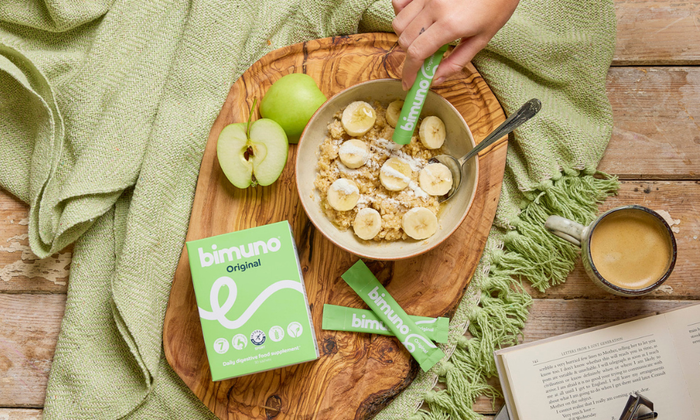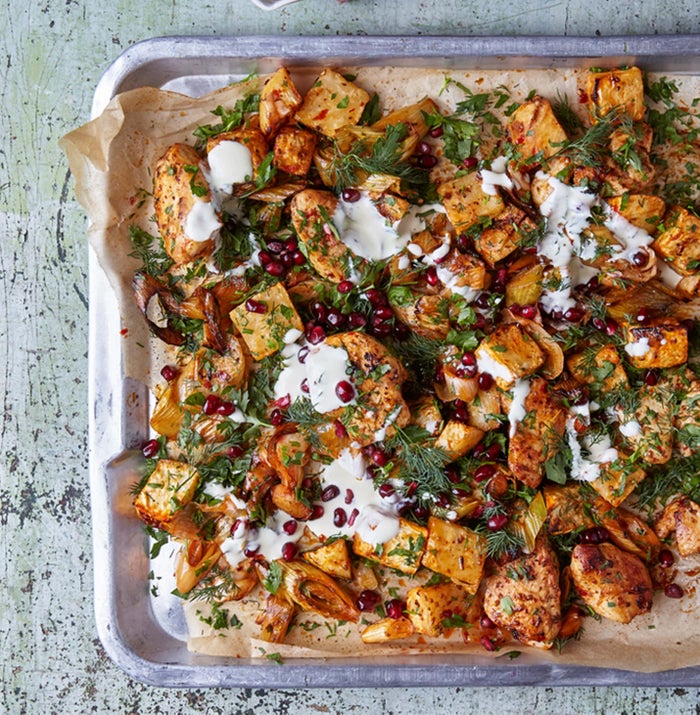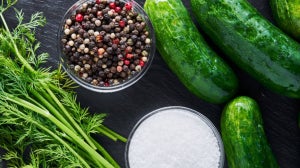
In our modern fast-paced world busyness has become almost a badge of honour. But busyness doesn’t equal being happier and ultimately it can lead us to a totally stressed-out state.
When we continue in the rat race of modern life there can be long-term and significant negative consequences for the health of our mind and body that very much includes our gut. After all, chronic stress underpins countless modern diseases, and it is particularly prevalent in those suffering from gut-related conditions such as IBS (irritable bowel syndrome) while many don't know there is a bi-directional relationship between our mind and our gut.
Here’s how stress impacts your gutThe gut and brain communicate back and forth to one another in various ways including via the HPA (hypothalamus-pituitary-adrenal) axis which relies on our endocrine system - the network of glands that release hormones into the bloodstream and is pivotal to the stress response. As part of this stress response, the hypothalamus, the area of the brain that links the nervous system and endocrine system, reacts to ‘threats’ and signals that come from the gut via the immune system and directly through the vagus nerve that joins the gut and the brain. With such heightened signals, the hypothalamus sends alarm bells to the pituitary and adrenal glands which activates hormones such as noradrenaline and cortisol and elicits the stress or ‘fight or flight’ response. The physical effects include heightened alertness and increased heart rate and blood flow to the arms and legs. It is essentially our survival mechanism.
But here’s the problem: the stress response prioritises survival over pretty much every other system in the body, crucially functioning of the gut and immune system as these become much less important when we are in a perceived ‘state of danger’. This is a healthy and natural stress response and once the perceived threat has passed our body can resume normal duties. However, when we experience ongoing chronic stress such as we do in modern-day life this response is never switched off by the opposing ‘rest & digest’ mode. With this constant stream of stress hormones such as cortisol, it can lead to a compromised immune system and a direct impact on the health of our gut. This includes having a negative effect on the composition of our gut microbiome so we have less of the ‘good’ bugs and more of the potentially unfriendly ones as well as compromising the functioning of the gut barrier that can lead to the production of further stress hormones. It, therefore, becomes a bit of a perpetual stress loop.
It also works the other way around in that our gut microbiome can influence how we respond to stress, and we have all felt the common physical effects of stress in our gut such as nausea, urgency and general feelings of unease - think about the time you were making a presentation or psyching up for an important meeting. Of course, psychological stressors can play a role, but it is also our gut microbiome that can also help to control our body and brain’s response to stress. Our gut microbiome therefore can positively or negatively affect how much we react to a stressor which makes it much more of a bi-directional relationship. A calmer frame of mind leads to a less stressed gut and vice versa it seems.
It is therefore clear that there are many ways in which our gut and mental stress affect one another and why we need to consider both managing our psychological stressors as well as supporting a calmer state in our gut.
Here are my 5 top tips to help to support our gut and to manage our stress…EAT THE RAINBOW
With food sources of prebiotics include garlic, leeks, onions, chicory, under-ripe bananas and oat, etc. We can also give a little extra prebiotic love by adding in a scientifically backed supplement like Bimuno. Including prebiotics as part of your diet helps to create balance in the gut and increases beneficial bugs in our gut that can help to support the gut-brain connection and help you manage the effects of stress. Click here to read more inspirational recipes.

Whilst we might look towards caffeine and high-energy foods to stimulate us, too much of these can actually make us even more nervous. So, for those of us who enjoy 2 cups of coffee every day, try to cut down to 1 cup per day if you are particularly stressed or anxious. Instead, swap your other cup for green tea which can give you a boost of energy. And whilst sugar can certainly form a part of a healthy diet try to think about more slow-release energy snacks when you have the afternoon slump such as an oatcake with a piece of cheese, sliced apple with almond butter, or a handful of berries with some natural live yogurt. And with chocolate, if you want to support your gut health, opt for the higher cocoa dark versions of 70% and above.
CONNECT WITH OUR FOODCooking can also be meditative if you want it to be so why not try my stress-free recipe of Harissa tray bake? Perfect for a mid-week easy and nourishing meal. Click HERE for the recipe.

A major part of supporting a healthy gut is how we are eating and in fact, mealtimes can act as pockets of recovery throughout the day. Remove all distractions and devices at mealtimes (emails at lunchtime can wait) and instead focus on the process of eating, tasting, and getting full enjoyment out of our food.
AND BREATHE…

REFERENCES
Qin HY, Cheng CW, Tang XD, Bian ZX. (2014) ‘Impact of psychological stress on irritable bowel syndrome’ World J Gastroenterol. 2014 Oct 21;20(39):14126-31. doi: 10.3748/wjg.v20.i39.14126. (Online). Available at https://pubmed.ncbi.nlm.nih.gov/25339801/
Konturek PC, Brzozowski T, Konturek SJ. (2011) ‘Stress and the gut: pathophysiology, clinical consequences, diagnostic approach and treatment options’ J Physiol Pharmacol 2011 Dec;62(6):591-9. (Online). Available at https://pubmed.ncbi.nlm.nih.gov/22314561/
Farzi, A, Fröhlich EE, Holzer P. (2018) ‘Gut Microbiota and the Neuroendocrine System’ Neurotherapeutics. 2018 Jan;15(1):5-22. doi: 10.1007/s13311-017-0600-5. (Online). Available at https://pubmed.ncbi.nlm.nih.gov/29380303/
Molina-Torres G et al (2019) ‘Stress and the gut microbiota-brain axis’ Behav Pharmacol. 2019 Apr;30(2 and 3-Spec Issue):187-200. doi: 10.1097/FBP.0000000000000478. (Online) Available at https://pubmed.ncbi.nlm.nih.gov/30844962/
Dinan TG & Cryan JF. (2017) ‘The Microbiome-Gut-Brain Axis in Health and Disease’ Gastroenterol Chin North Am. 2017 Mar;46(1):77-89. doi: 10.1016/j.gtc.2016.09.007. Epub 2017 Jan 4. (Online). Available at https://pubmed.ncbi.nlm.nih.gov/28164854/
Fung, TC. (2020) ‘The microbiota-immune axis as a central mediator of gut-brain communication’ Neurobiol Dis. Mar;136:104714. doi: 10.1016/j.nbd.2019.104714. Epub 2019 Dec 14. (Online). Available at https://pubmed.ncbi.nlm.nih.gov/31846737/
Kumar J, Rani K, Chander D. (2020) ‘Molecular link between dietary fibre, gut microbiota and health’ Mol Biol Rep. 2020 Aug;47(8):6229-6237. doi: 10.1007/s11033-020-05611-3. Epub 2020 Jul 4. (Online). Available at https://pubmed.ncbi.nlm.nih.gov/32623619/
Holscher H. (2017) ‘Dietary fiber and prebiotics and the gastrointestinal microbiota’ Gut Microbes. 2017 Mar 4;8(2):172-184. doi: 10.1080/19490976.2017.1290756. Epub 2017 Feb 6. (Online). Available at https://pubmed.ncbi.nlm.nih.gov/28165863/
Househam, AM, Peterson CT, Mills PJ, Chopra D. (2017) ‘The Effects of Stress and Meditation on the Immune System, Human Microbiota, and Epigenetics’ Adv Mind Body Med. 2017;31(4):10-25. (Online). Available at https://pubmed.ncbi.nlm.nih.gov/29306937/
Dunlop J (2015). ‘Meditation, stress relief, and well-being’ Radio Technol. 2015 May-Jun;86(5):535-55; quiz 556-9. (Online). Available at https://pubmed.ncbi.nlm.nih.gov/25995404/

Related Articles








